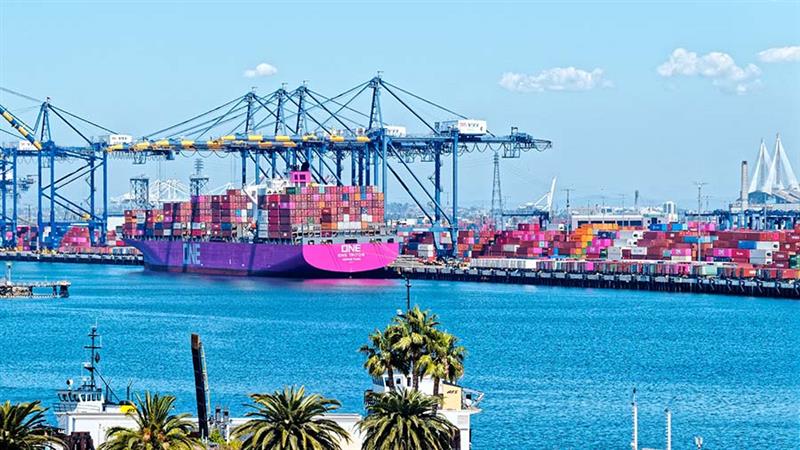China Clarifies Export Refund Policies
Jul. 17 – Over the past few years, the Ministry of Finance (MOF) and State Administration of Taxation (SAT) have issued a series of regulations regarding value-added tax (VAT) and consumption tax (CT) on export goods and processing, repair and replacement services. In an attempt to clean up the multitude of regulations and clarify China’s export refund policies, two regulations have been issued recently.
One of these is the “Notice Regarding VAT and CT Policies for Export Goods and Services (caishui [2012] No. 39, hereinafter referred to as ‘Notice’)” jointly issued by the MOF and SAT on May 25, 2012. Subsequently, on June 14, 2012, the SAT issued the “Administrative Regulations on VAT and CT for Export Goods and Services (SAT Circular [2012] No. 24, hereinafter referred to as ‘Circular).” Some stipulations in the regulations are effective retroactively from January 1, 2011, while others are effective starting from July 1, 2012. Both regulations abolished a number of previously issued regulations and stipulations.
Some of the key adjustments made by the Notice and Circular to previous rules are as follows:
Cancellation of restrictions on newly-established enterprises
The previous stipulation that newly-established enterprises cannot obtain tax refund within 12 months of establishment has been cancelled.
Extension of the time for submitting proof for tax refund
Export enterprises now have from the month following the day that the goods are declared for customs until April 30 of the following year to collect all relevant proof and apply for VAT exemption, credit and refund as well as CT refund.
Expansion of the scope of purchased goods that are deemed self-manufactured by manufacturing enterprises, and thus entitled to VAT refund/exemption.
For enterprises meeting certain criteria, where the goods purchased for export are of the same type as, or are related to, the enterprises’ self-manufactured goods, the purchased goods will be deemed to be self-manufactured. In addition, the following goods purchased by manufacturing enterprises for export are also deemed to be self-manufactured:
- Mechanical and electrical products used in projects they won bids for;
- Goods used in foreign contracted projects;
- Goods used in offshore investment;
- Goods provided as external aid;
- Equipment and raw materials (excluding agricultural products) purchased for producing self-manufactured products.
Narrowing of the scope of export goods subject to tax
Only the below export goods and services will be subject to VAT:
- Goods the tax refund/exemption of which are specifically cancelled by the SAT
- Daily consumer goods and transportation equipment exported to special regions
- Goods that are exported during the period in which VAT refund/exemption for the enterprises is suspended by the tax authority as a result of the use of fraud in obtaining export refund
- Cigarettes that failed to declare for tax exempt verification within the stipulated time limit, or that have been denied tax exempt verification after examination by the in-charge tax authority
- Goods for which forged filing materials were provided
- Other goods in violation of rules and regulations
Specification of the advanced tax refund policy for certain products
Where a manufacturing enterprise that meets certain conditions enters into an export contract with respect to transportation tools and mechanical equipment with a manufacturing cycle of one year or above – the enterprise can apply for tax exemption, credit, and refund with the in-charge tax authority on the strength of the export contract and detailed sales invoice prior to the collection of all necessary proof for tax refund. After the goods have been declared for export with the customs, the enterprise should then apply for tax refund/exemption undertake the relevant verification procedure and return any excessive refunds.
Dezan Shira & Associates is a specialist foreign direct investment practice, providing corporate establishment, business advisory, tax advisory and compliance, accounting, payroll, due diligence and financial review services to multinationals investing in emerging Asia. Since its establishment in 1992, the firm has grown into one of Asia’s most versatile full-service consultancies with operational offices across China, Hong Kong, India, Singapore and Vietnam as well as liaison offices in Italy and the United States.
For further details or to contact the firm, please email china@dezshira.com, visit www.dezshira.com, or download the company brochure.
You can stay up to date with the latest business and investment trends across China by subscribing to The China Advantage, our complimentary update service featuring news, commentary, guides, and multimedia resources.
Related Reading
 Value-Added Tax Reform
Value-Added Tax Reform
VAT reform is a confusing transition for many and introduces a number of additional questions, such as exactly what types of input VAT are now deductible. Confusion about the new laws may also allow opportunistic companies to charge higher prices and blame the increase on the tax reform. To add some clarity to the issue – and VAT in general – this issue of China Briefing takes a look at a number of VAT-related questions.
 The China Tax Guide (Fifth Edition)
The China Tax Guide (Fifth Edition)
This popular book, fully updated with all recent tax changes and amendments, details all taxes in China affecting businesses and individuals, how to calculate the amounts due, tax registration and filing procedures, tax minimization techniques, and claiming VAT rebates. It also details good financial management techniques, handling negotiations with the tax bureau and annual audit and compliance procedures.
China Reforms Foreign Exchange Administration in Goods Trade
Shanghai Requires Computer Generated Tax Invoice for Claiming Export Refund
China Clarifies Use of Special VAT Invoices for Export Tax Refunds
- Previous Article The China Alternative – Singapore
- Next Article Joint Ventures Back in Vogue for Accessing China’s Central Regions



























